Top 9 Health Benefits of Pumpkin
Pumpkin is a winter squash belonging to the Cucurbitaceae family. It is indigenous to North America and is most popular around Thanksgiving and Halloween. ... read more...While pumpkin is often considered a vegetable, it is a fruit because it includes seeds. However, it is more nutritionally comparable to vegetables than fruits. Aside from its delightful flavor, pumpkin is healthy and has been linked to several health advantages. Read on for more information.
-
Free radicals are chemicals created by the metabolic activity of your body. Though very fragile, they provide important functions such as eliminating dangerous microorganisms. Excess free radicals in your body, on the other hand, cause oxidative stress, which has been related to chronic ailments such as heart disease and cancer. Antioxidants found in pumpkins include alpha-carotene, beta-carotene, and beta-cryptoxanthin. These can neutralize free radicals, preventing them from causing damage to your cells.
Animal and test-tube studies have demonstrated that these antioxidants protect the skin from UV damage and reduce the risk of cancer, eye illness, and other ailments. Keep in mind, however, that further human-based research is required before making health recommendations.
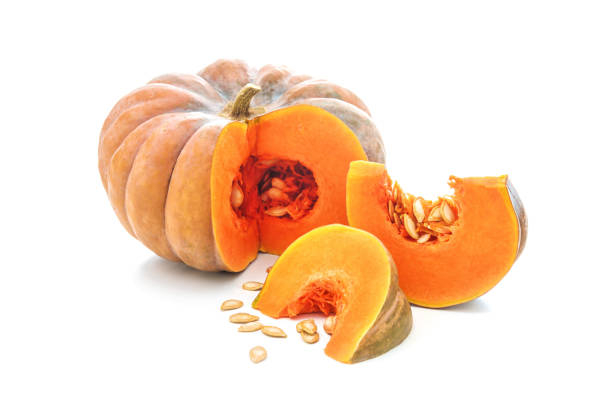
Reduce Your Risk of Chronic Diseases 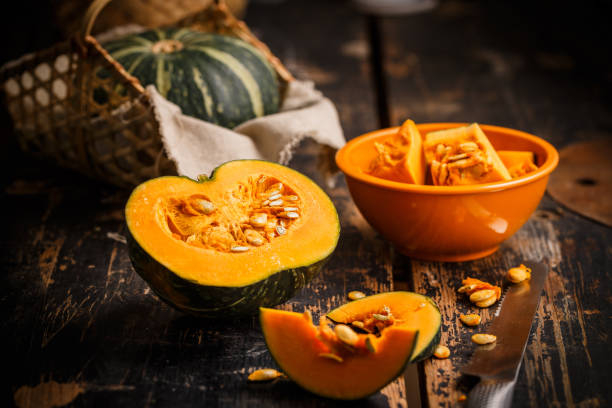
Reduce Your Risk of Chronic Diseases -
The good news is that pumpkin is a high-nutrient food. That is, it is low in calories and high in important vitamins and minerals. In fact, one cup of cooked pumpkin has just 49 calories. Pumpkin is also a high-fiber food, with 2.7 grams of fiber per cup. Fiber helps you feel fuller for longer by eliminating "bad" cholesterol and regulating blood glucose levels. Furthermore, more than 60% of the fiber in pumpkin is soluble fiber, which swells with water in your gut to delay the rate at which your body absorbs glucose in your circulation. Soluble fiber also attaches to low-density lipoprotein cholesterol, or LDL cholesterol, and transports it out of your body as waste.
Consuming extra soluble fiber might also aid with fat loss. A 10-gram increase in daily soluble fiber consumption decreased abdominal fat by 3.7 percent in one research. Insoluble fiber accounts for the remaining 40% of pumpkin fiber. It's in the flesh's fibrous threads. Insoluble fiber is necessary for good gut health. It controls bowel motions and maintains a healthy bacterial balance.
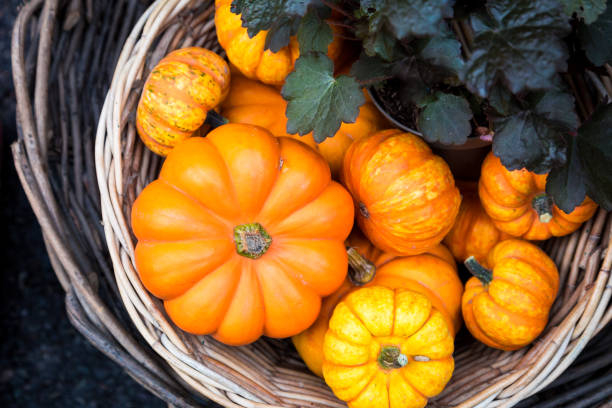
High in Fiber 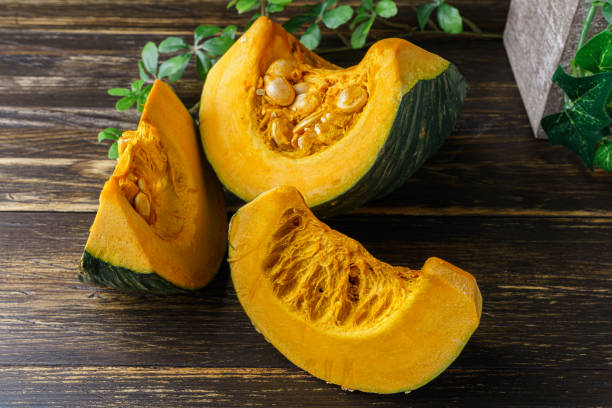
High in Fiber -
Another advantage of pumpkin is that it promotes good eye health. Pumpkins, for example, are high in beta carotene. Your body transforms beta carotene into vitamin A, which is essential for vision. One of the most important benefits of vitamin A for your eyesight is that it lowers your chance of developing macular degeneration, a common eye ailment in adults over the age of 50. The most frequent symptom of macular degeneration is impaired vision. The macula is the region of the retina that is in charge of sharp vision.
The good news is that a one-cup portion of pumpkin includes 9,875 IUs of vitamin A, which is within the range of ideal daily doses. So, one cup of pumpkin will provide you with all of the vitamin A you require for the day to maintain your eye health. Pumpkin also includes the carotenoids lutein and zeaxanthin, which protect your skin and eyes from UV radiation exposure. Your body creates these two carotenoids present in the macula lutea, which function as a natural sunscreen. Adequate levels of lutein and zeaxanthin are also linked to a lower incidence of age-related eye illness.

Facilitate Eye Health 
Facilitate Eye Health -
Pumpkin's high amounts of Vitamin A promote eye health, and the same pumpkin advantages apply to your skin. Your liver turns vitamin A into retinol, a naturally occurring type of vitamin A found in plants and animals. Many skin-care products include retinol, however, the majority of the retinol in these products is synthesized and chemically manipulated. Natural retinol promotes the growth of new skin cells and the creation of collagen. Pumpkin contains the carotenoids lutein and zeaxanthin, which protect the skin from UV radiation. UV rays cannot be seen, yet they pass through your skin and can cause harm.
Too much sun exposure permits these hazardous UV rays to penetrate your skin's inner layers. You've probably heard of a sunburn. Sunburns, in addition to being exceedingly painful, damage and kill skin cells. Too much sun exposure can cause premature aging, freckles and skin tags, skin cancer, weaken your immune system, and harm your eyes, in addition to burning your skin.

Supports Your Skin 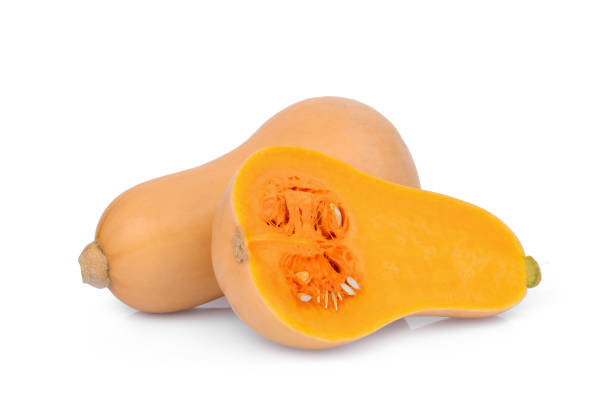
Supports Your Skin -
Your immune system is a complicated network of cells and proteins that work together to protect your body from illness. Each of us has two immune systems: innate and adaptive. Our genetic makeup contains instructions for innate immunity. This component of your immune system normally triggers white blood cells to travel to the location of a cut, for example. Your adaptive immune system, on the other hand, truly learns! It retains a record of every germ it has ever destroyed so that it can identify and eliminate it if you come across it again.
Because it supports your body's natural defenses, vitamin A is crucial for promoting a healthy immune system response. This includes the mucosal barriers that trap germs and viruses in your eyes and intestines. Vitamin A also promotes the formation of white blood cells, which help to combat viruses in the circulation. Furthermore, pumpkin is high in vitamin C, which is essential for good health and the immune system. Vitamin C promotes a balanced inflammatory response and protects against free radicals.
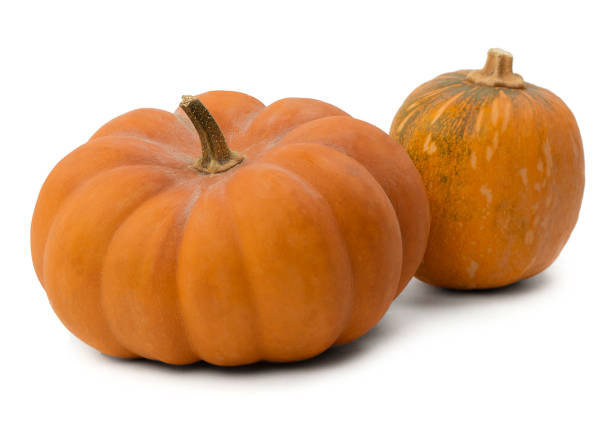
Supports Your Immune System 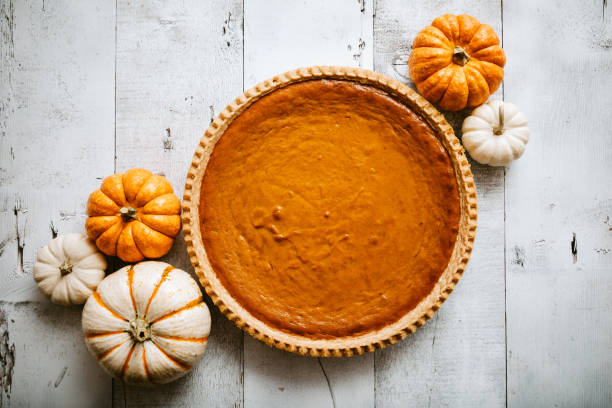
Supports Your Immune System -
One of the health advantages of pumpkin is that it is an antioxidant due to the high levels of carotenoids in it. Carotenoids are antioxidant chemicals that combat free radicals that cause oxidative damage. Free radicals are unstable compounds with an unequal distribution of electrons. They scour your body for a spare electron to steal, causing harm to healthy tissue. Cancer cells create free radicals, which aid in their fast proliferation. Antioxidant molecules reduce the reactivity of free radicals by donating an electron to them.
When free radicals and antioxidants are in equilibrium, free radicals begin to damage your cells, proteins, and DNA. This is known as oxidative stress, and it can raise your risk of heart disease, autoimmune illness, and cancer. By limiting your exposure to chemicals, controlling stress, and eating enough antioxidant-rich foods like pumpkin, you can prevent dangerous free radical damage and lessen your cancer risk.
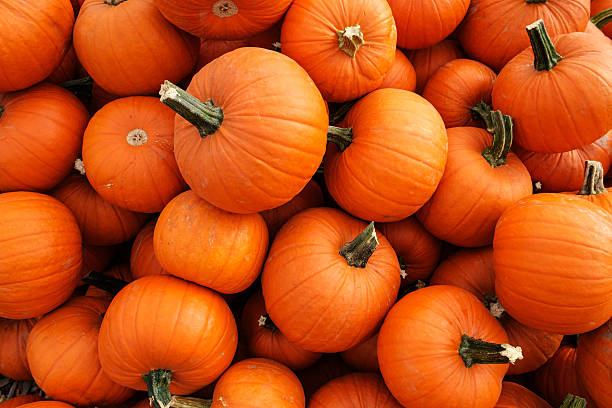
High in Antioxidant 
High in Antioxidant -
According to research, oxidative stress is also associated with an increased risk of heart disease. As previously stated, antioxidant-rich foods like pumpkin are free radical scavengers that can help reduce your risk of heart disease. Potassium is one of these minerals, which, together with vitamin C, folate, and fiber, improves heart health.
Potassium is one of your body's most vital minerals. It is also an electrolyte, which transports electrical impulses throughout the body and controls blood pressure, water balance, muscular contractions, digestion, heart rate, and nerve impulses. 13 Pumpkin has 564 milligrams of potassium per cup! Pumpkin is also high in vitamin C, with 11.5 milligrams in one cup. Vitamin C has been demonstrated to aid in the reduction of LDL cholesterol and triglycerides, both of which are risk factors for heart disease.
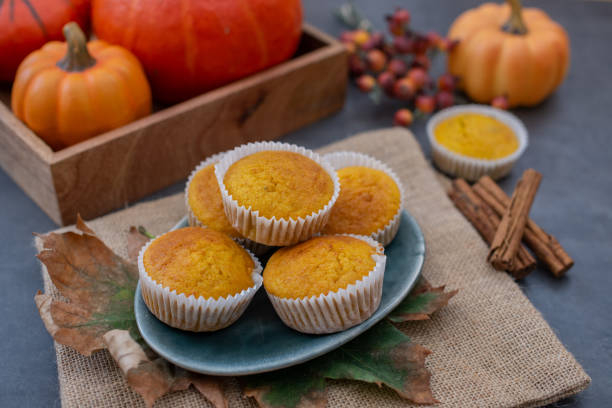
Support Heart Health 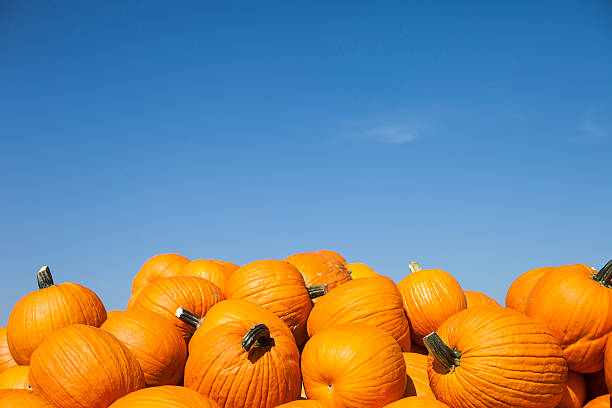
Support Heart Health -
Eating pumpkin as part of a healthy, balanced diet can help you lose weight. The amount of pumpkin you may eat, however, is determined by the sort of diet you follow. Consider your diet and the limits it imposes. Many diets can help you lose weight. Certain diets, such as the high-carbohydrate diet, require you to eat mostly low-fat, plant-based meals. Other diets, such as the low-carb and ketogenic diets, limit your carbohydrate intake.
According to the Mayo Clinic, most low-carb diets limit carbohydrate intake to 20 to 60 grams per day. Carbohydrate restriction, on the other hand, solely pertains to net carbohydrates. According to the Mayo Clinic, net carbs are carbohydrates minus dietary fiber, or carbohydrates minus both dietary fiber and sugar alcohols. A cup of cooked pumpkin has 9.3 grams of net carbohydrates. This means that severe low-carb dieters would be limited to around 2.5 cups per day if no additional fruits, vegetables, or plant-based items were consumed that day. Because a diverse diet is generally healthier, heavy pumpkin consumption and rigid low-carb diets are incompatible.
You should also keep in mind that a pumpkin is made up of more than simply its flesh. If you want to enhance your protein consumption while also having a nice snack, you may eat the pumpkin seeds. According to the USDA, each ounce of roasted pumpkin seeds has 8.5 grams of protein. Iron, magnesium, phosphorus, zinc, copper, and manganese are also abundant.
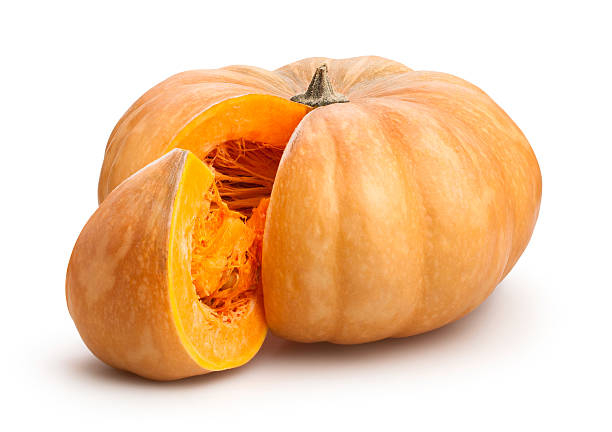
Promote Weight Loss 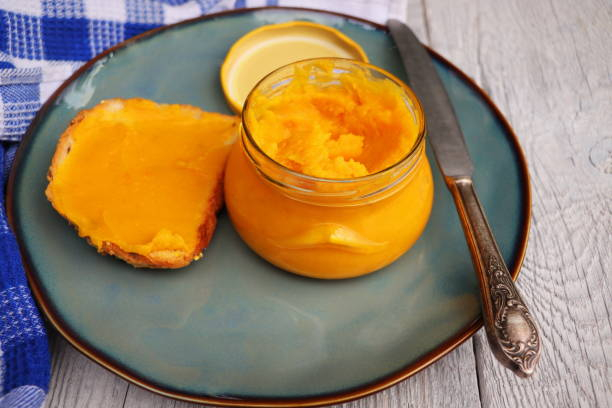
Promote Weight Loss -
Cancer is a dangerous disease characterized by abnormal cell growth. Cancer cells create free radicals to aid in their fast proliferation. Pumpkin is abundant in carotenoids, which are antioxidant-like chemicals. This enables them to neutralize free radicals, perhaps protecting against some malignancies.
For example, a meta-analysis of 13 studies found that persons who consumed more alpha-carotene and beta-carotene had a considerably decreased risk of stomach cancer (18TS). Many additional human studies have revealed that those who consume more carotenoids had a decreased risk of throat, pancreatic, breast, and other cancers. However, experts are unsure whether the carotenoids themselves or other variables — such as the lifestyle practices of persons who consume carotenoid-rich diets — are to blame for these decreased risks.
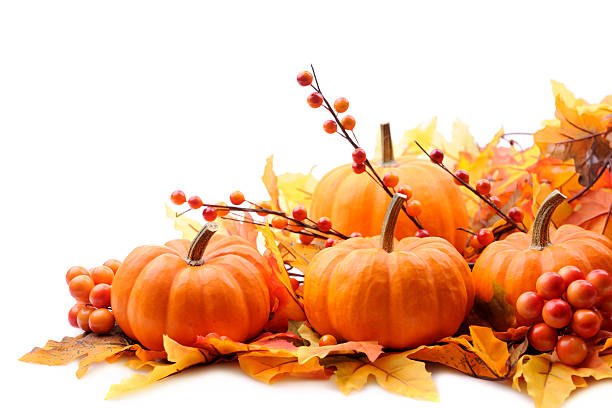
Lower Your Risk of Cancer 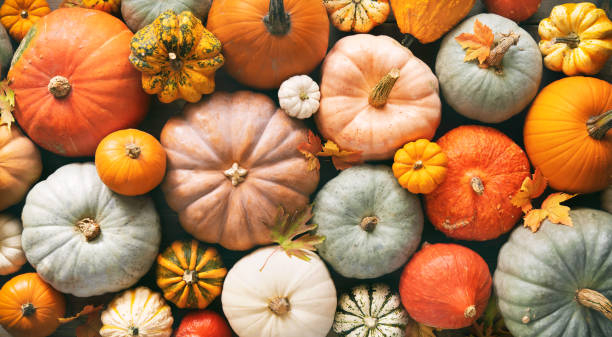
Lower Your Risk of Cancer






























